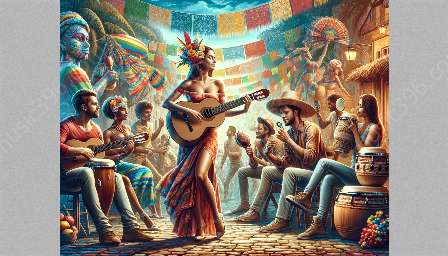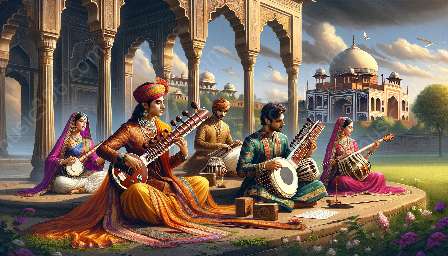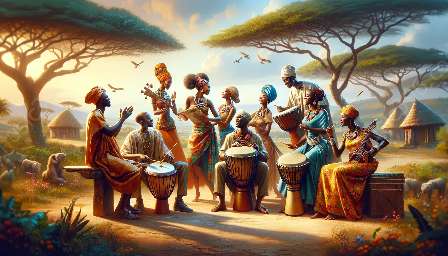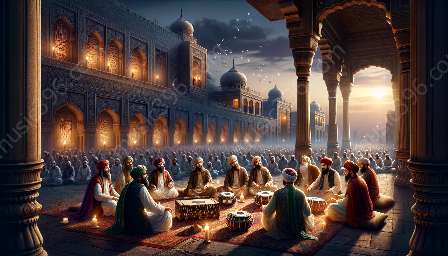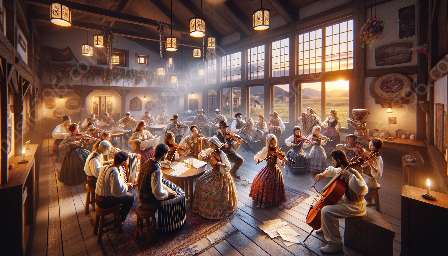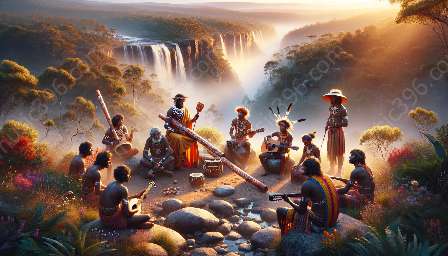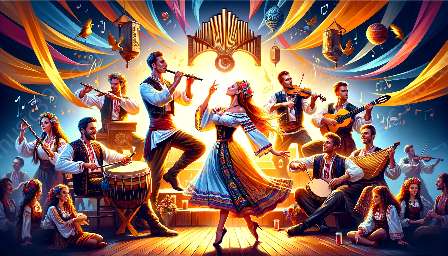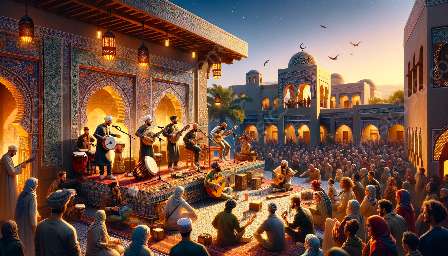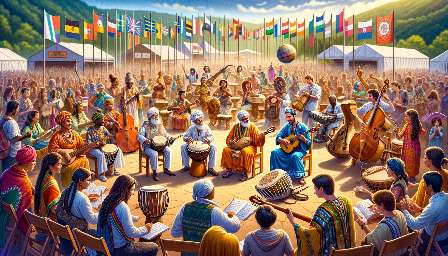Music has always been intertwined with storytelling, and folklore and mythology have played a significant role in shaping musical narratives across the world. The fusion of ethno-musicology and world music offers a fascinating lens through which to study the impact of folklore and mythology on musical expressions, delving into the cultural, historical, and social contexts that influence these narratives.
Understanding Folklore and Mythology
Folklore encompasses the beliefs, customs, and traditions passed down through generations within a particular community, often conveyed through oral traditions, music, and dance. Mythology, on the other hand, consists of stories and legends that are often linked to religious or supernatural elements, serving as a foundational aspect of a culture's identity.
Enriching Musical Expressions
When examining the influence of folklore and mythology on musical narratives, it becomes evident that these elements imbue music with depth, emotion, and authenticity. Whether through traditional folk songs or epic mythological tales, musicians draw upon these narratives to convey cultural pride, emotions, and historical experiences.
Oral Tradition
Many folk and mythological narratives are preserved and transmitted through oral traditions, where music and storytelling intertwine to create a multidimensional experience. Ethno-musicologists study how these oral traditions shape musical compositions, rhythm, and lyrical content, providing invaluable insights into the cultural significance of the narratives.
Symbolism and Imagery
Folklore and mythology are rich sources of symbolism and imagery. Musicians often incorporate these elements into their compositions, using music as a medium to evoke powerful emotions and convey complex narratives. The use of specific musical instruments, vocal styles, and melodic motifs can be traced back to the symbolic themes found within folklore and mythology.
Cultural Preservation
Within the realm of world music, the preservation of cultural heritage is a central tenet. Folklore and mythology play a crucial role in this preservation, as they provide a link to the past and serve as a vehicle for passing down cultural knowledge, values, and beliefs. This preservation through music offers a living connection to the traditions of the past.
Regional Diversity
Every culture boasts its unique folklore and mythology, resulting in a rich tapestry of musical narratives that reflect the diverse experiences and perspectives of different communities. Ethno-musicologists explore this regional diversity, seeking to understand how folklore and mythology contribute to the musical identity of various societies around the world.
Evolution of Musical Styles
Examining the intersection of folklore, mythology, and musical narratives also sheds light on the evolution of musical styles. As traditions are passed down and reinterpreted over time, new musical genres and styles emerge, showcasing the adaptability and transformative power of folklore and mythology in shaping contemporary musical expressions.
Research and Documentation
The field of ethno-musicology plays a pivotal role in documenting and preserving the musical narratives shaped by folklore and mythology. Ethno-musicologists engage in fieldwork, archival research, and collaboration with local communities to record and analyze the impact of folklore and mythology on musical traditions.
Community Engagement
Engaging with communities that have rich folklore and mythological traditions is essential for ethno-musicologists. By working closely with community members, ethno-musicologists gain firsthand insights into the significance of folklore and mythology in musical narratives, fostering a deeper understanding of the cultural and social dynamics at play.
Interdisciplinary Approach
Exploring the role of folklore and mythology in shaping musical narratives requires an interdisciplinary approach, where ethno-musicologists collaborate with scholars specializing in folklore studies, cultural anthropology, and history. This interdisciplinary approach enriches the understanding of how musical expressions are intertwined with folklore and mythology.
Conclusion
The influence of folklore and mythology on musical narratives is undeniable, enriching world music with cultural depth, historical significance, and emotional resonance. By intertwining ethno-musicology with folklore and mythology, we gain a deeper appreciation for the transformative power of these narratives in shaping musical expressions across the globe.

